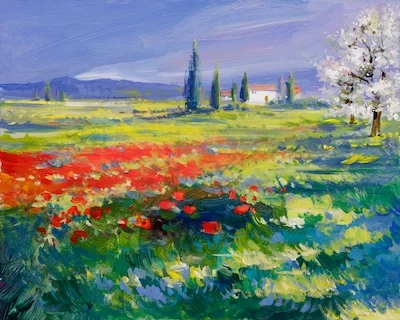
Oscar Cahén "A Hero Comes Home", 1952
Oscar Cahén "A Hero Comes Home", 1952, India ink, watercolour on high-art illustration board., 25" x 17"
On the eve of Remembrance Day, the Museum of Contemporary Art Calgary has received the offer of donation of an impressive artwork that celebrates military service and commemorates sacrifice. A Hero Comes Home, 1952 (India ink, watercolour on high-art illustration board., 20" x 17") is a work by renowned Canadian artist and illustrator, Oscar Cahén (1916-1956).
The original drawing was used to create an illustration that was published in "Weekend Magazine" on July 5, 1952. The drawing is currently on display at MOCA until November 28 as part of the exhibition: Oscar Cahén: Canada’s Groundbreaking Illustrator- Illustrative work 1931- 1956.
The artwork was offered as donation to the collection of MOCA Calgary by the artist’s son, Michael Cahén of the Cahén Archives. In making the offer he observed:
“This donation has a very special resonance for The Cahén Archives. Jeffrey Spalding, Artistic Director of MOCA Calgary is one of the first senior Canadian museum professionals to fully recognize the importance of this art form, and the interplay between Oscar's illustrations and his abstract work. A Hero Comes Home is one of the finest examples of that interaction, beautifully demonstrated in technique and vocabulary.
Now thanks to this inaugural exhibition in Calgary, plus new exhibitions yet to be announced, the work can be viewed and shared on a larger stage. I know that Oscar would be pleased.”
Spalding commented: “We are very fortunate to receive this gracious offer. The work is a tender and touching image that will help us now and in future years participate with Remembrance Day observances”.
Oscar Cahén: Canada’s Groundbreaking Illustrator- Illustrative work 1931- 1956
October 4 – November 28, 2012
The passage of time does much to alter our perceptions. Art history holds a place of great distinction for the work of Oscar Cahén as a painter. His dazzling colour and inventive compositions earned him the admiration of his contemporaries. His erudite European training prepared him to be a role model and leading figure in the band of abstract artists that would coalesce to form the renowned group Painters Eleven. There is still much work to be done before we will fully appreciate the extent of the influence and impact his work exerted upon the appearance of abstract art in Canada in the 1950s and subsequent generations. Nonetheless, his place within our art history is now acknowledged and well-known as an artist of exemplary singular talent, represented in our important public museum collections.
Yet at the time of his tragic death in 1956 at age 40, the star of Oscar Cahén, painter extraordinaire, might have been eclipsed in the public eye by Oscar, the renowned celebrated illustrator. From the time of his release in 1942 from World War II internment camp at Sherbrooke, Quebec, the rise of Oscar, preeminent magazine illustrator, continued ascendant. His prodigious output adorned the pages of countless publications; his witty stylistic flair earned him the chance to create a succession of magazine covers. Illustrations by Oscar were no mere accoutrement to printed text; Oscar was a genuine celebrity with a devoted public following who eagerly awaited the publication of his next creations. Oscar’s images encompassed a broad range of moods and human emotions. Works, from the war addressed serious issues, post war lament and tenderness, to the frivolous gaiety of celebrating festive holidays. Canada came of age, chronicled by Oscar’s depictions of the era. They contribute immensely to the picture we hold of Canada at mid-century, a place in transition from the traditions born of the British Dominion to a dynamic young nation evolving cosmopolitan airs of urban sophistication. Much of this vision is attributable to Oscar’s illustration art.
The Museum of Contemporary Art Calgary is honoured to have the opportunity to host the Canadian premiere solo exhibition of the illustration work of Oscar Cahén and thereby re-introduce us once again to ourselves: Canada of the 1940s and 1950s.
Jeffrey Spalding RCA, C.M.
Artistic Director
